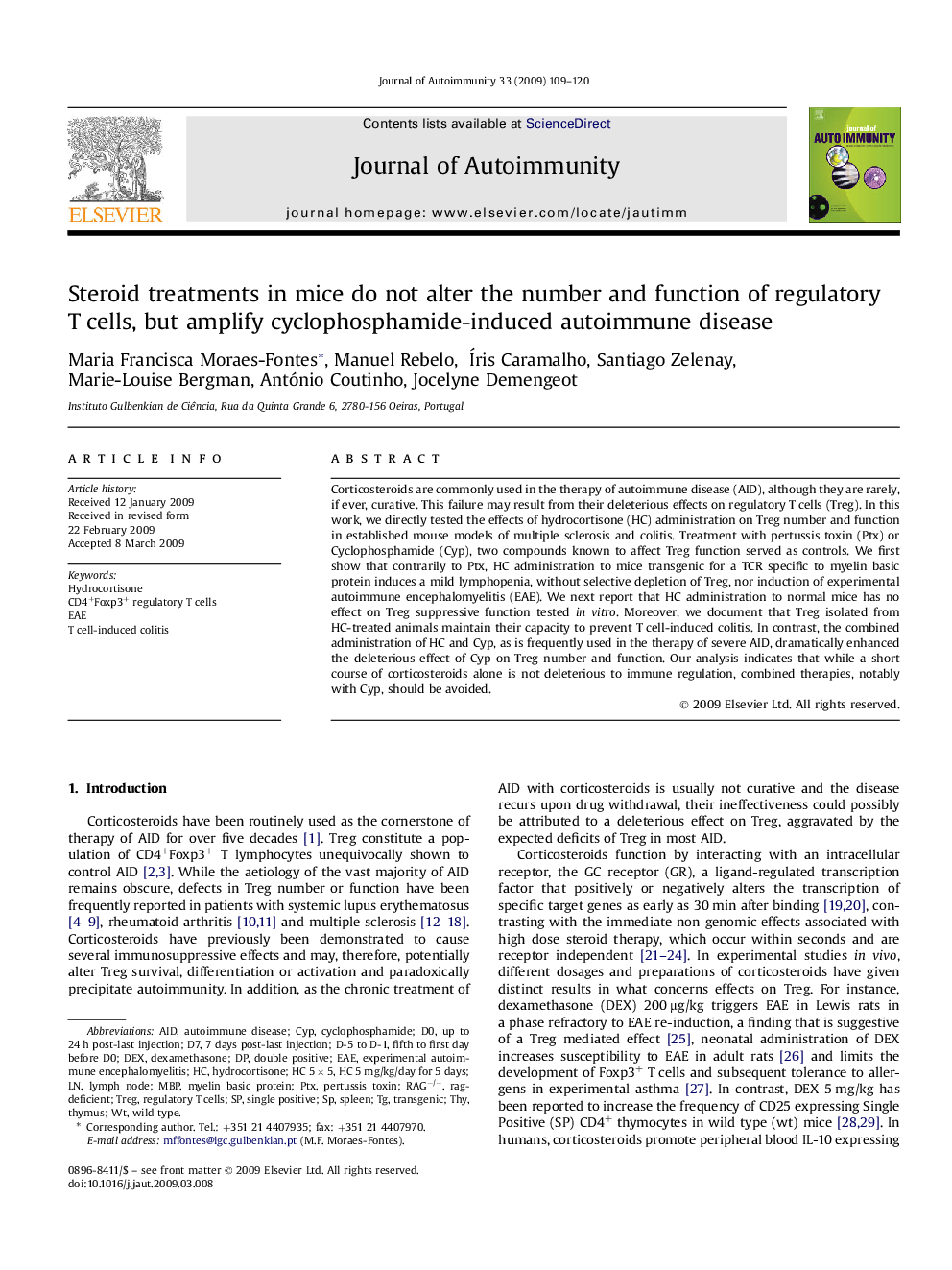| Article ID | Journal | Published Year | Pages | File Type |
|---|---|---|---|---|
| 3368238 | Journal of Autoimmunity | 2009 | 12 Pages |
Corticosteroids are commonly used in the therapy of autoimmune disease (AID), although they are rarely, if ever, curative. This failure may result from their deleterious effects on regulatory T cells (Treg). In this work, we directly tested the effects of hydrocortisone (HC) administration on Treg number and function in established mouse models of multiple sclerosis and colitis. Treatment with pertussis toxin (Ptx) or Cyclophosphamide (Cyp), two compounds known to affect Treg function served as controls. We first show that contrarily to Ptx, HC administration to mice transgenic for a TCR specific to myelin basic protein induces a mild lymphopenia, without selective depletion of Treg, nor induction of experimental autoimmune encephalomyelitis (EAE). We next report that HC administration to normal mice has no effect on Treg suppressive function tested in vitro. Moreover, we document that Treg isolated from HC-treated animals maintain their capacity to prevent T cell-induced colitis. In contrast, the combined administration of HC and Cyp, as is frequently used in the therapy of severe AID, dramatically enhanced the deleterious effect of Cyp on Treg number and function. Our analysis indicates that while a short course of corticosteroids alone is not deleterious to immune regulation, combined therapies, notably with Cyp, should be avoided.
